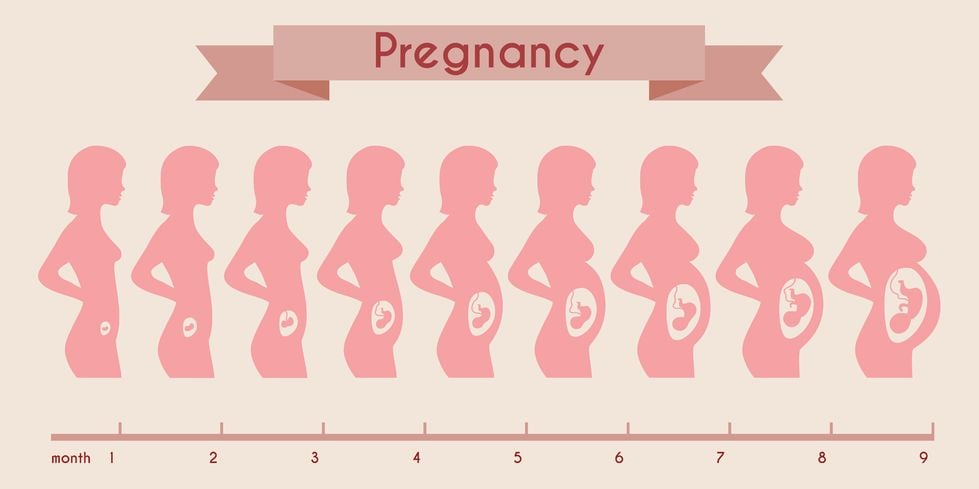At one month pregnant, there is still not much visible physical change. The fetus is only about 6-7 mm big. This is very small and likened to the size of a rice grain.
The placenta develops during this period. This is an organ that supplies the embryo with nutrients and takes away waste products. In one month, the placenta is functional.
Dark circles for eyes, as well as the throat, mouth, and lower jaw start developing. Body systems like the blood circulation system also begin developing. Blood cells take shape in preparation for the circulation. Read on to learn more about the body’s changes at one month of pregnancy.

Mother’s Body at One Month
In one month, the embryo is still very small. But, how does it affect the body of the mother? However small it is, significant effects are felt by the mother. Physical changes may not be evident, but the feelings are still there.
The first thing that happens in the first month is missing your period. It is at this point that the body starts producing pregnancy hormones – hCG. The hormones signal to the ovaries to stop releasing eggs.
There is increased production of estrogen and progesterone, which are responsible for breast growth (increase in size). The pregnancy test also depends on the production of this hCG. It can easily be noticed in urine in one month.
During fertilization and implantation, the mother may only experience morning sickness as a major sign of pregnancy. At one month, the embryo and other supporting organs have developed. This in turn creates the following symptoms.
Bloated Stomach
The organs begin to develop quickly after the first month. To cope with these rapid changes, the body begins preparations.
Your uterine wall starts thickening, which is the major cause of bloating. Bloating is a feeling of a full stomach with the production of gases.
This should not be confused with any complications that may arise. The bloating is mainly felt in the abdomen.
Light Spotting and Bleeding
Some women will experience a little bleeding or spotting. This is called implantation bleeding and should only last for a maximum of three days. Implantation takes place around this time.
Prolonged bleeding or too much blood is not normal, and it is important to consult a health provider if this occurs. Spots or bleeding that come later than one month are not considered implantation bleeding.
Moodiness
Mood swings set in at one month pregnant. These shifts and extreme emotions are triggered by increasing hormone production.
It happens in the first month and can also be experienced later in the third trimester. Sleep, massages, relaxation exercises, and maintaining a balanced diet are among the best remedies.
For appropriate exercises, consult your health provider about the exercises that best serve your body.
Fatigue

Despite the grain-sized embryo in your womb, the body will get tired. The body is working hard to ensure that your baby is in good shape.
This can happen in early mornings before even doing anything. Given the small size of the embryo, getting too tired is a sign of iron deficiency. Eating iron-rich foods is the remedy.
What to Consider
Consider creating a balanced diet at this point. Some nutrients may be required in higher amounts than the rest.
Iron and calcium should top the list. Iron can be achieved from cereals and spinach, while calcium can be achieved from yogurt, cheese, and milk.
Refrain from unhealthy practices, like smoking and drinking alcohol. Replace alcohol with water and other healthy beverages. Try to also avoid second-hand smoke, which is considered more dangerous than direct smoking.
Smoking will deform the embryo organs from their early stages. Try manageable exercises starting at one month of pregnancy to lower stress levels. As aforementioned, proceed with the exercise only when a healthcare provider approves.
Conclusion
At just one month into pregnancy, the baby will be so small you won’t see much of a difference in your size.
However, your body will start to change immensely from the inside out. Pay attention to these changes as you progress in your pregnancy.







